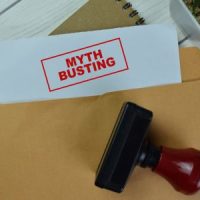Busting Myths about Louisiana Workers’ Compensation – Myth #1: My Employer Must be at Fault for Me to Obtain Louisiana Workers’ Compensation Benefits

There is no doubt that there is a ton of misinformation out there on the internet. Between fake news sites, scams, troll accounts on social media, and misinformed comments on public posts, it is hard these days to tell fact from fiction. One area where a large amount of misinformation and misunderstanding takes place is in the realm of Louisiana workers’ compensation benefits. A common myth among Louisiana residents when it comes to Louisiana workers’ compensation benefits is that in order for an injured worker to be entitled to Louisiana workers’ compensation benefits, the injured workers’ employer must have been at fault in causing the accident or injury. Here we bust this myth and explain why the fault of the employer is not relevant to the inquiry of whether an injured Louisiana worker is entitled to Louisiana workers’ compensation benefits.
Louisiana Workers’ Compensation Benefits and “No Fault” Workers’ Compensation Laws
Despite widespread misinformation and myths, in reality, workers’ compensation programs in Louisiana, and throughout the rest of the country, typically do not require an injured worker to prove that their employer was at fault in causing a disabling accident or injury. The reason that injured workers in Louisiana do not need to prove that their employer was at fault in order to be eligible for Louisiana workers’ compensation benefits is that Louisiana is a “no fault” workers’ compensation state. This means that under Louisiana workers’ compensation laws, an injured worker need not prove that the employer’s negligent or intentional acts caused the disabling injury. Instead, the Louisiana workers’ compensation program allows most injured workers in Louisiana to obtain Louisiana workers’ compensation benefits by showing a work-related injury that has disabled the worker from doing their job. Eliminating the requirement that Louisiana workers prove that an employer was at fault for causing a disabling workplace injury has roots in efficiency and economy of claims. The Louisiana no-fault workers’ compensation system allows injured workers to avoid bringing lengthy and costly lawsuits against their employers, while being jobless. Instead, Louisiana workers’ compensation system allows most injured workers to obtain important Louisiana compensation benefits so they can get back on their feet and return to work and regular life.
Help for Injured Workers in Louisiana – Louisiana Workers’ Compensation Lawyer
There are many myths surrounding the Louisiana workers’ compensation system, and knowing exactly what the laws are can be confusing. That’s where an experienced Louisiana workers’ compensation lawyer can step in to help you with your claim. If you were injured at work in Louisiana and you would like to speak to a lawyer about your entitlement to Louisiana workers’ compensation benefits, contact the experienced and skilled Louisiana workers’ compensation lawyers at Lunsford Baskin & Priebe. The experienced Louisiana workers’ compensation lawyers at Lunsford Baskin & Priebe offer a free and confidential consultation to learn about your case and to see if they can help fight for you. Contact Lunsford Baskin & Priebe today and speak to a lawyer about your case for free.
